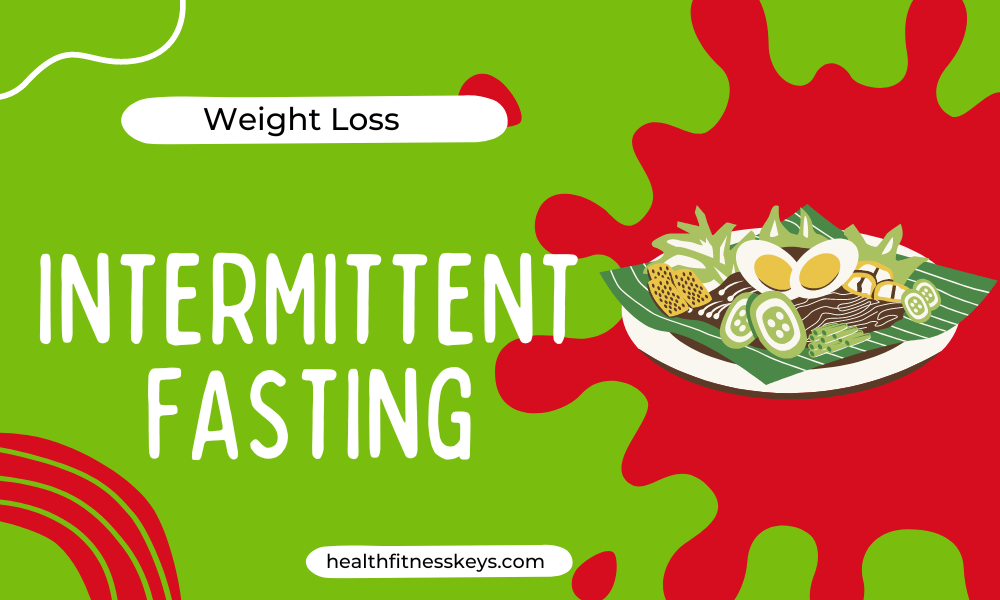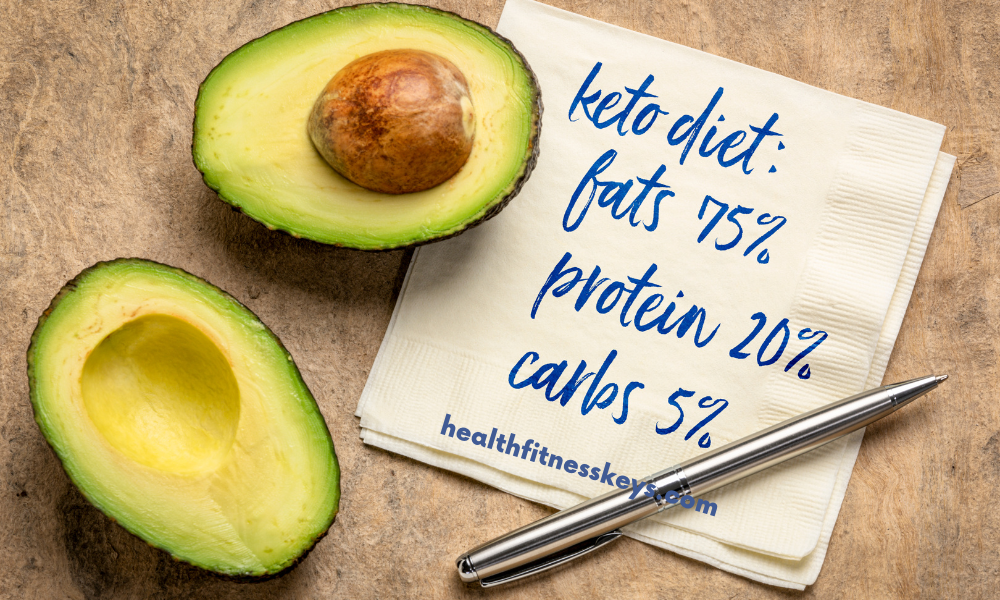Intermittent fasting (IF) has gained significant popularity in recent years as an effective weight loss strategy. This approach involves restricting calorie intake for specific periods, alternating with periods of normal or increased calorie consumption. IF can also offer a range of other health benefits, including improved insulin sensitivity, reduced inflammation, and increased longevity.
In this article, we will explore the science behind intermittent fasting, its potential benefits and drawbacks, different types of IF, how to implement it, and tips to maximize its effectiveness. We will also address common concerns and questions related to IF.
The Science of Intermittent Fasting
Intermittent fasting is based on the principle of calorie restriction, which has been shown to promote weight loss and improve metabolic health. When you consume fewer calories than your body requires, it must burn stored fat for energy, leading to weight loss. Calorie restriction can also improve insulin sensitivity, reduce inflammation, and delay the onset of age-related diseases.
IF takes calorie restriction a step further by focusing on when you eat, rather than just how much you eat. By restricting calorie intake to specific time windows, IF can help your body enter a state of ketosis, in which it burns stored fat for energy instead of glucose. Ketosis has been shown to promote weight loss, reduce inflammation, and improve brain function.
Types of Intermittent Fasting:
There are various types of intermittent fasting that one can follow. Some of the most popular ones are:
1. Time-restricted feeding (TRF):
Time-restricted feeding is one of the most popular forms of intermittent fasting. With TRF, you restrict your eating window to a certain number of hours per day. Typically, this means fasting for 16 hours and eating within an eight-hour window. For example, you might eat your first meal at noon and your last meal at 8 pm. During the fasting period, you can drink water, coffee, or tea without sugar or cream.
TRF is popular because it is easy to follow and fits into most people’s schedules. It can also help regulate insulin levels and reduce the risk of chronic diseases such as diabetes and heart disease. However, it can be difficult to stick to an eight-hour eating window, especially if you have a busy schedule.
2. Alternate-day fasting (ADF):
Alternate-day fasting involves alternating between fasting and eating days. On fasting days, you eat very few calories, typically around 500 calories, or nothing at all. On eating days, you can eat whatever you want within a certain time frame.
ADF can be challenging because it requires a significant calorie restriction on fasting days, which can lead to hunger and low energy levels. However, studies have shown that ADF can be an effective way to lose weight and improve overall health.
3. 5:2 diet
The 5:2 diet involves eating normally for five days of the week and restricting calorie intake to 500-600 calories for the other two days. The two fasting days can be consecutive or spaced out throughout the week.
The 5:2 diet is another popular form of intermittent fasting because it allows you to eat normally for the majority of the week. It can also be challenging to stick to the low-calorie limit on fasting days, but studies have shown that it can be an effective way to lose weight and improve metabolic health.
4. Eat-stop-eat
Eat-stop-eat involves fasting for 24 hours once or twice a week. For example, you might fast from dinner one day until dinner the next day. During the fast, you can drink water, coffee, or tea without sugar or cream.
Eat-stop-eat can be challenging because it involves a full day of fasting. However, studies have shown that it can be an effective way to lose weight and improve overall health.
5. Warrior diet
The warrior diet involves eating one large meal at night and fasting during the day. During the fasting period, you can have small amounts of raw fruits and vegetables, and drinks such as water, coffee, or tea.
The warrior diet is based on the idea that our ancestors were hunters and gatherers who would eat one large meal at the end of the day. While this eating pattern can be challenging for some people, it can be an effective way to reduce calorie intake and improve overall health.
6. Spontaneous meal skipping
Spontaneous meal skipping involves skipping meals when you’re not hungry or when it’s not convenient to eat. For example, you might skip breakfast if you’re not hungry in the morning or if you’re running late for work.
Spontaneous meal skipping is not a structured form of intermittent fasting, but it can be an effective way to reduce calorie intake and improve overall health. However, it’s important to listen to your body and not skip meals if you’re feeling hungry or low on energy.
Benefits of Intermittent Fasting
Intermittent fasting not only helps with weight loss, but it also has several other health benefits. Some of the benefits of intermittent fasting are:
1. Weight loss
Intermittent fasting can help you lose weight by reducing calorie intake and increasing metabolism. When you fast, your body uses stored fat as energy, which leads to weight loss. Studies have shown that intermittent fasting can lead to significant weight loss and fat loss, especially in obese individuals.
2. Improved insulin sensitivity
Insulin is a hormone that regulates blood sugar levels. Intermittent fasting can improve insulin sensitivity, which means your body can use insulin more effectively to lower blood sugar levels. This can reduce the risk of type 2 diabetes and improve overall health.
3. Reduced inflammation
Chronic inflammation is associated with many diseases, including heart disease, cancer, and Alzheimer’s disease. Intermittent fasting can reduce inflammation in the body, which may help prevent these diseases.
4. Improved heart health
Intermittent fasting can improve heart health by reducing blood pressure, cholesterol levels, and triglycerides. This can lower the risk of heart disease and stroke.
5. Increased longevity
Some studies suggest that intermittent fasting can increase lifespan and delay the onset of age-related diseases. This may be due to the beneficial effects of fasting on metabolism, inflammation, and cellular repair.
6. Improved brain function
Intermittent fasting may improve cognitive function and protect against neurodegenerative diseases such as Alzheimer’s and Parkinson’s disease. Fasting stimulates the production of brain-derived neurotrophic factor (BDNF), a protein that promotes the growth and survival of brain cells.
Overall, intermittent fasting can be a safe and effective way to improve health and wellbeing. However, it’s important to consult with a healthcare professional before starting any new diet or fasting regimen, especially if you have any underlying health conditions or are taking medication.
How to Implement Intermittent Fasting

If you are interested in trying intermittent fasting, it is important to choose a type of IF that suits your lifestyle and goals. Here are some general tips for implementing IF:
- Start slowly: If you are new to IF, start with a shorter fasting period, such as 12-14 hours, and gradually increase the duration over time.
- Choose a time window: Decide on a specific time window for eating and fasting that works for your schedule and preferences.
- Stay hydrated: Drink plenty of water and other non-caloric fluids during the fasting period to avoid dehydration.
- Eat nutrient-dense foods: When you do eat, focus on nutrient-dense foods that provide essential vitamins and minerals.
- Avoid overeating: It can be tempting to overeat during the eating period, but this can negate the benefits of IF. Focus on eating until you are satisfied, not stuffed.
Tips to Maximize the Effectiveness of Intermittent Fasting
Here are some additional tips to maximize the effectiveness of intermittent fasting:
- Exercise regularly: Regular exercise can help boost weight loss and improve overall health. Aim for at least 30 minutes of moderate-intensity exercise most days of the week.
- Monitor your progress: Keep track of your weight, measurements, and other markers of health to monitor your progress and adjust your approach as needed.
- Be consistent: Consistency is key with intermittent fasting. Stick to your chosen time window for eating and fasting as much as possible to maximize the benefits.
- Seek professional advice: If you have any underlying health conditions or are taking medications, it is important to consult a healthcare professional before starting intermittent fasting.
Drawbacks
While intermittent fasting has been shown to be an effective weight loss strategy, there are also some drawbacks and potential concerns to consider. Here are a few:
- Risk of nutrient deficiencies: If not carefully planned, intermittent fasting can lead to nutrient deficiencies, especially if the fasting periods are prolonged. This can be particularly problematic for individuals who already have nutrient deficiencies or who are pregnant or breastfeeding.
- Risk of overeating: Some people may find that they overeat during their eating periods, which can undermine the weight loss benefits of fasting.
- Disruptive social life: Intermittent fasting can be challenging to stick to when eating out or socializing with friends and family. This can lead to feelings of isolation or a sense of missing out on social experiences.
- Difficulty with exercise: Some people may find that their energy levels are too low to exercise during a fast, which can limit the potential health benefits of physical activity.
- Risk of binge eating: Intermittent fasting may trigger binge eating behaviours in some individuals, especially those with a history of disordered eating.
- Not suitable for everyone: Intermittent fasting may not be appropriate for individuals with certain medical conditions, such as diabetes or eating disorders. It is important to consult with a healthcare professional before starting any new dietary regimen.
- Can be challenging to sustain: Intermittent fasting can be difficult to sustain over the long term, which can limit its effectiveness as a weight loss strategy.
Common Concerns and Questions about Intermittent Fasting
Q1. Will intermittent fasting slow down my metabolism?
Ans. There is some evidence to suggest that prolonged fasting can slow down metabolism, but intermittent fasting has not been shown to have this effect.
Q2. Can I still exercise during a fast?
Ans. Yes, moderate exercise is generally safe during a fast, but it is important to listen to your body and adjust your intensity as needed.
Q3. Will I feel hungry during a fast?
Ans. It is normal to feel some hunger during a fast, especially at first. However, this usually diminishes over time as your body adjusts to the new eating pattern.
Q4. Can I still drink coffee or tea during a fast?
Yes, black coffee, tea, and other non-caloric beverages are generally allowed during a fast.
Q5. Who Should Avoid Intermittent Fasting?
While intermittent fasting is safe for most people, some individuals should avoid it. People who should avoid intermittent fasting are:
- Pregnant or breastfeeding women: Pregnant or breastfeeding women should not follow intermittent fasting, as it can affect their health and the health of their baby.
- People with a history of eating disorders: People with a history of eating disorders should avoid intermittent fasting, as it can trigger the condition.
- People with medical conditions: People with medical conditions such as diabetes, low blood pressure, or heart disease should consult a healthcare professional before following intermittent fasting.


